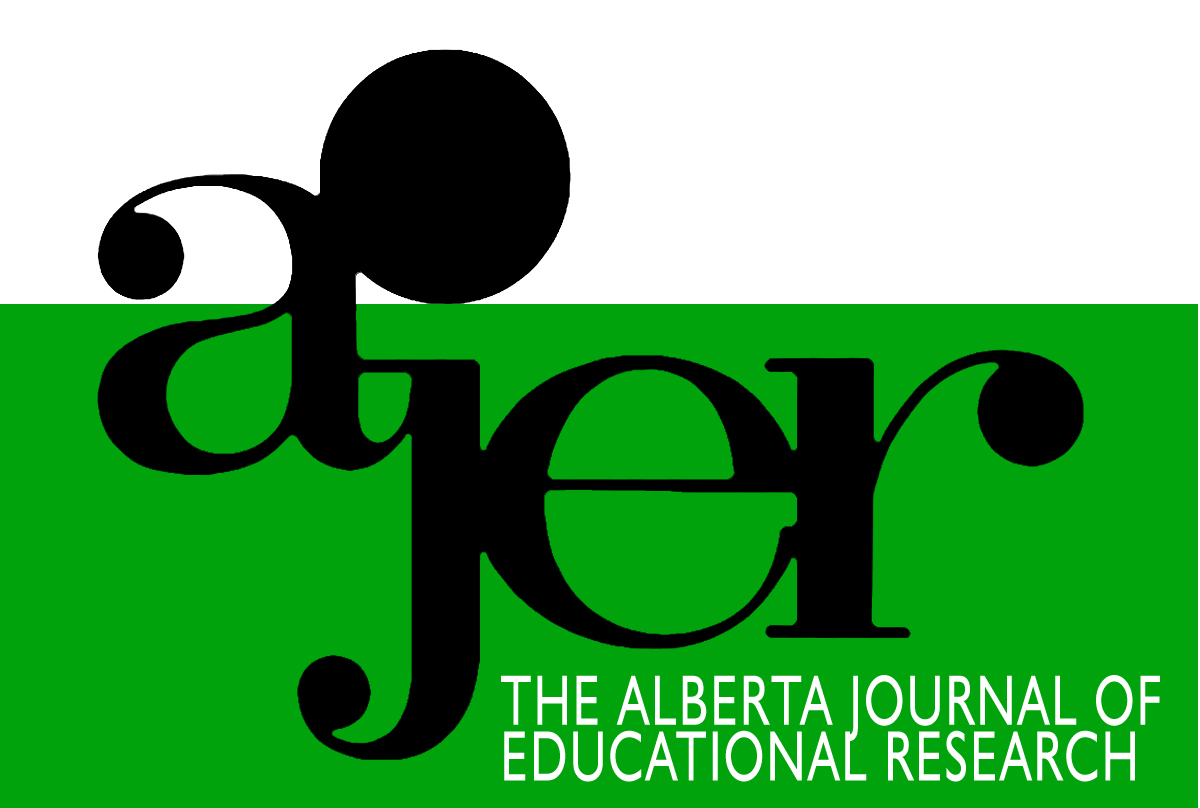Assessing Student Orientation to School to Address Low Achievement and Dropping Out
DOI:
https://doi.org/10.55016/ojs/ajer.v60i2.55821Keywords:
student engagement, non-cognitive assessment, student achievement, high school completion, data-informed decision-making, Mots clés, implication des élèves, évaluation non cognitive, rendement des élèves, achèvement des études secondaires, prise de décisAbstract
This study contributes to applied and theoretical research for schools and districts by helping inform programs and policies directed at school improvement, raising student achievement, and high school completion. The paper features recent results of ongoing research on student orientation to school that was assessed via a multi-dimensional Student Orientation to School Questionnaire (SOS-Q). The SOS-Q was initially used by a Canadian school district to better understand the reasons for dropping out of school. Since then the project has grown into a multi-organizational collaboration. This study demonstrates persistent associations between student orientation to school, academic achievement, and high school completion and makes the case for integrating valuable non-cognitive components within comprehensive student information and assessment systems.
Cette étude contribue à la recherche appliquée et théorique portant sur les écoles et les districts scolaires dans la mesure où elle pourra servir à étayer les programmes et les politiques visant l’amélioration des écoles, le rehaussement du rendement par les élèves et l’achèvement des études secondaires. Cet article présente les résultats récents d’une recherche en cours sur l’adaptation scolaire évaluée par le biais d’un questionnaire pluridimensionnel. Le questionnaire a d’abord servi d’outil pour un district scolaire canadien qui cherchait à mieux comprendre les raisons du décrochage scolaire. Depuis, le projet s’est transformé en collaboration impliquant plusieurs organisations. Cette étude révèle des associations systématiques entre l’adaptation des élèves à l’école, le rendement académique et l’achèvement des études secondaires. Elle milite en faveur de l’intégration de composantes non cognitives importantes au sein des systèmes scolaires d’information et d’évaluation.
Downloads
Published
Issue
Section
License
UNIVERSITY OF ALBERTA COPYRIGHT LICENSE AND PUBLICATION AGREEMENT
If accepted, authors will be asked to sign a copyright agreement with the following points:
A. Where there is any inconsistency between this Copyright License and Publication Agreement and any other document or agreement in relation to the same subject matter, the terms of this Agreement shall govern.
B. This document sets out the rights you are granting in relation to publication of your article, book review, or research note entitled (the “Article”) through inclusion in the academic journal titled Alberta Journal of Educational Research (the “Journal”) published through the Faculty of Education, representing the Governors of the University of Alberta (the “Journal Editor”).
C. There will be no payment to you for this publication and grant of rights. In consideration of the agreement to publish the Article in the Journal:
1. You are warranting that:
- the content of the Article is your original work, and its content does not contain any material infringing the copyright of others; or, where the Article is not entirely your original work, you have obtained all necessary permissions in writing to grant the rights you are giving in this agreement;
- the content of the Article does not contain any material that is defamatory of, or violates the privacy rights of, or discloses the confidential information of, any other person;
- the Article has not been published elsewhere in whole or in part, and you will not allow publication of the Article elsewhere without the consent of the Journal Editor;
- the names of all co-authors and contributors to the Article are:
2. You agree to license the copyright in the Article to the Journal Editor, on a worldwide, perpetual, royalty free basis; and to the extent required by the terms of this agreement. You shall retain the right at all times to be acknowledged as the/an author of the Article.
3. You further agree that the Journal Editor has the entitlement to deal with the Article as the Journal Editor sees fit, and including in the following manner;
- The right to print, publish, market, communicate and distribute the Article and the Journal, in this and any subsequent editions, in all media (including electronic media), in all languages, and in all territories, ing the full term of copyright, and including any form of the Article separated from the Journal, such as in a database, abstract, offprint, translation or otherwise, and to authorize third parties to do so;
- The right to register copyright of the Journal;
- The right to edit the Article, to conform to editorial policy as the Journal Editor sees fit.
4. If any co-author or contributor to the Article does not sign this agreement, the Journal Editor reserves the right to refuse to publish the Article.



